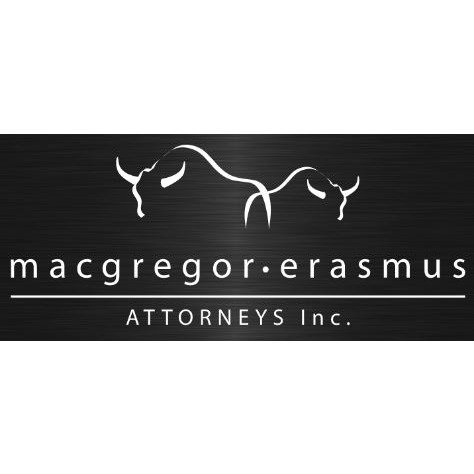Best Acquisition / Leveraged Finance Lawyers in Durban
Share your needs with us, get contacted by law firms.
Free. Takes 2 min.
List of the best lawyers in Durban, South Africa
About Acquisition / Leveraged Finance Law in Durban, South Africa
Acquisition and leveraged finance are key components of the corporate finance landscape in Durban and throughout South Africa. These legal fields focus on funding strategies for acquiring companies, assets, or legal entities, often using borrowed funds or debt instruments. Acquisition finance involves structuring and facilitating financial resources for mergers, acquisitions, or management buyouts, while leveraged finance uses considerable debt to improve the potential return on investment. Due to Durban's active commercial sector and presence of leading local and multinational businesses, these transactions are common, involving complex legal, regulatory, and financial considerations.
Why You May Need a Lawyer
Legal support for acquisition or leveraged finance transactions in Durban is often essential given the high stakes and complexity involved. Typical situations where legal assistance is valuable include:
- Negotiating and drafting financing agreements - Structuring acquisition transactions for tax efficiency and regulatory compliance - Managing due diligence processes to uncover legal risks in target companies or assets - Navigating cross-border finance and currency control documentation - Resolving disputes that arise from financing arrangements - Ensuring compliance with the Competition Act and other South African statutes - Advising on risk allocation between buyers, sellers, and lenders - Assisting with required filings and approvals from regulatory bodies - Advising on security arrangements and lender protections - Guiding complex refinancing or restructuring scenarios
Local Laws Overview
Acquisition and leveraged finance transactions in Durban are governed by several key South African laws and regulations. Some of the most relevant include:
- Companies Act 71 of 2008: Governs company acquisitions, mergers, and regulations for share issues, financial assistance, and director responsibilities. - Competition Act 89 of 1998: Requires notification and approval for certain mergers and acquisitions to prevent anti-competitive practices. - Financial Markets Act 19 of 2012: Regulates the trading and settlement of securities, crucial in public M&A and takeover scenarios. - Exchange Control Regulations: Managed by the South African Reserve Bank, these restrict certain cross-border financial and currency transactions. - Security Laws: Dictate the creation, registration, and enforcement of securities, including bonds, cessions, and notarial bonds. - Tax Laws: Influence the structuring of acquisitions and leveraged finance to ensure optimal tax outcomes. - Insolvency and Business Rescue Legislation: Impacts the structuring of finance and protections available to lenders.
Durban practitioners also navigate local court practices and municipal regulations that may affect due diligence and transaction execution.
Frequently Asked Questions
What is acquisition finance?
Acquisition finance is the use of various financial instruments or borrowed capital to fund the purchase of another company or its assets. It can involve loans, bonds, equity, or a combination of these.
How does leveraged finance differ from traditional financing?
Leveraged finance typically involves higher levels of debt compared to traditional lending. The strategy is to use borrowed funds to amplify potential returns while accepting higher risks, especially in mergers and acquisitions.
What legal risks are common in acquisition and leveraged finance deals in Durban?
Risks often include due diligence oversights, regulatory non-compliance, improper structuring, enforceability of security agreements, competition law violations, and tax pitfalls.
What regulatory approvals are required for acquisition transactions in South Africa?
Most large acquisitions, especially mergers, require prior approval or notification under the Competition Act. Deals with cross-border elements may also need authorizations from the South African Reserve Bank.
Can foreign investors acquire South African companies using leveraged finance?
Yes, but such transactions are subject to exchange control regulations and sometimes competition and sector-specific laws. Legal advice is crucial to ensure the deal complies with all rules.
What security can lenders require in an acquisition or leveraged finance deal?
Lenders commonly require a combination of share pledges, asset mortgages, cessions of receivables, guarantees, and notarial bonds, all properly registered and compliant with South African law.
What is due diligence and why is it important?
Due diligence is the investigative process to assess the legal, financial, and operational risks associated with a target company or asset. Comprehensive due diligence helps identify potential problems and shapes the negotiation and documentation of the transaction.
Are there restrictions on how acquisition or leveraged finance can be structured?
Yes, restrictions may arise from the Companies Act (including rules about financial assistance), competition regulations, exchange controls, and tax laws. Proper structuring requires knowledge of all applicable statutes.
What is the role of a legal advisor in these transactions?
A legal advisor assists in structuring the deal, conducting due diligence, drafting and negotiating legal agreements, ensuring regulatory compliance, protecting clients' interests, and facilitating closing and post-closing matters.
How long does an acquisition or leveraged finance transaction usually take in Durban?
Timeframes vary widely depending on deal complexity, regulatory approvals, and negotiations, but transactions can take from a few weeks to several months. Early engagement of legal and financial advisors can expedite the process.
Additional Resources
Individuals or companies seeking further help with acquisition or leveraged finance in Durban can consider consulting the following:
- South African Reserve Bank (SARB): For exchange control and cross-border finance queries. - Companies and Intellectual Property Commission (CIPC): For company registrations, mergers, and compliance information. - Competition Commission of South Africa: For guidance on merger notifications and approvals. - South African Institute of Chartered Accountants (SAICA): For financial reporting and due diligence matters. - Durban Chamber of Commerce and Industry: For local business environment guidance. - Law Society of South Africa: For referrals to qualified legal practitioners with relevant expertise.
Next Steps
If you are planning an acquisition or require leveraged financing in Durban, it is important to:
- Clearly define your goals, timeline, and financing needs - Gather all relevant documentation on your business and the proposed acquisition - Identify experienced legal advisors with expertise in acquisition and leveraged finance - Arrange an initial consultation to discuss your objectives, potential risks, and the optimal transaction structure - Ensure your advisors liaise with all necessary financial, tax, and regulatory specialists - Allow sufficient time for due diligence, legal drafting, and regulatory approvals - Ask your legal team to prepare a transaction roadmap and checklist to keep the process on track
Taking these proactive steps will help ensure a smooth, legally compliant, and successful acquisition or financing transaction in Durban, South Africa.
Lawzana helps you find the best lawyers and law firms in Durban through a curated and pre-screened list of qualified legal professionals. Our platform offers rankings and detailed profiles of attorneys and law firms, allowing you to compare based on practice areas, including Acquisition / Leveraged Finance, experience, and client feedback.
Each profile includes a description of the firm's areas of practice, client reviews, team members and partners, year of establishment, spoken languages, office locations, contact information, social media presence, and any published articles or resources. Most firms on our platform speak English and are experienced in both local and international legal matters.
Get a quote from top-rated law firms in Durban, South Africa — quickly, securely, and without unnecessary hassle.
Disclaimer:
The information provided on this page is for general informational purposes only and does not constitute legal advice. While we strive to ensure the accuracy and relevance of the content, legal information may change over time, and interpretations of the law can vary. You should always consult with a qualified legal professional for advice specific to your situation.
We disclaim all liability for actions taken or not taken based on the content of this page. If you believe any information is incorrect or outdated, please contact us, and we will review and update it where appropriate.

















